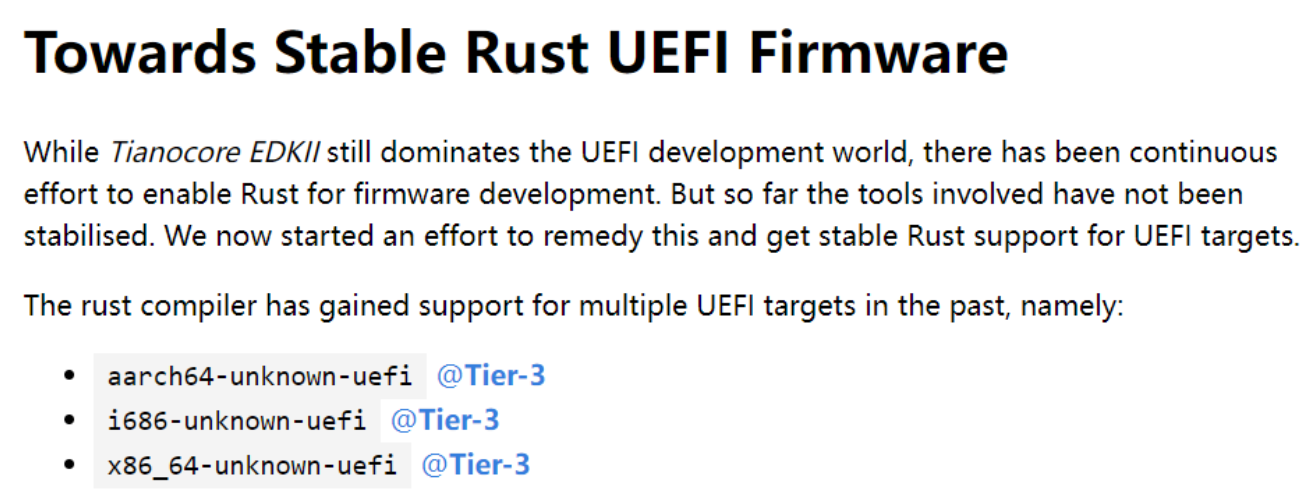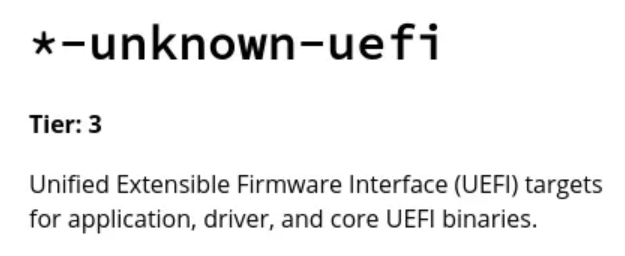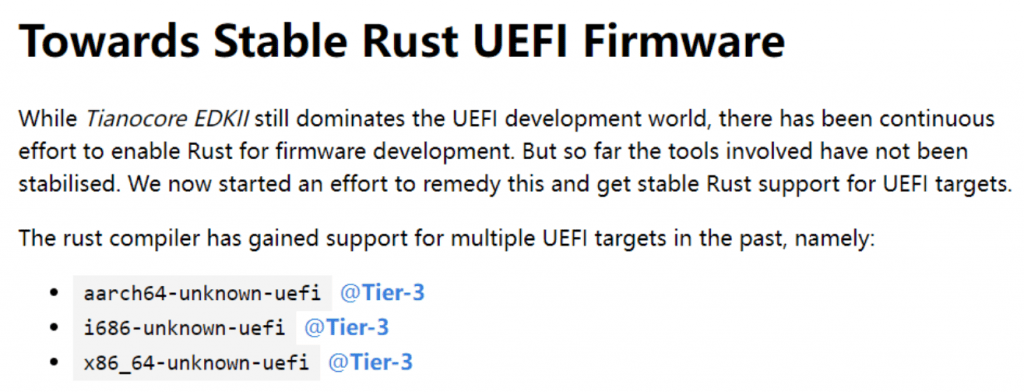Red Hat engineer David Rheinsberg is a contributor to systemd, BUS1, KMSCON, and other open source projects, and has been leading the effort to bring Rust UEFI firmware support to Tier 2 for several years. In addition to systemd contributors and other roles, David and Google’s Nicholas Bishop are maintainers of the Rust UEFI target.
Rust currently supports UEFI targets for the AArch64, i686 and x86_64 architectures, so Rust UEFI applications can be built against them. To make Rust usable for firmware development, David wants these UEFI targets to be upgradeable from Rust’s Tier-3 to Tier-2.

Rust Tier-3 is the lowest classification level at which they merge targets upstream. But Tier-3 targets lack official compiler builds in the Rust distribution pipeline, lack Rust continuous integration (CI) guarantees, and force users to use nightly/unstable compiler builds.

David wants to raise the Rust UEFI target to Tier 2 so they can use automated builds through the Rust release channel – no more nightly/unstable builds.Also, automated CI builds should alsoHelps ensure good support for those who want to use Rust for UEFI firmware development.This improvement, in turn, will make it easier for developers to start working on UEFI system firmware development using Rust.
David summarizes his advice with this article. He also opened the Rust UEFI MCP with the compiler team, hoping to facilitate the proposal.
#Rust #UEFI #firmware #support #level #expected #upgraded #Tier
